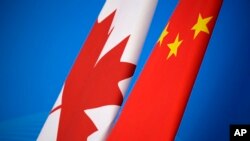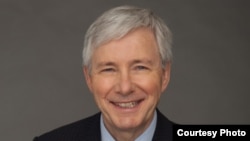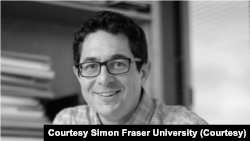The arrest of an employee of Quebec’s public electricity provider on suspicion of sending trade secrets to China is prompting the latest in a series of allegations that Beijing is actively spying and conducting clandestine operations within Canada. Beijing has denied wrongdoing.
Days earlier, the Canadian Global Television Network issued a report, based mostly on unnamed sources, that alleged China actively interfered in the last two Canadian parliamentary elections. Canadian intelligence officials reportedly believe the Chinese foreign ministry provided cash donations to at least 11 favored candidates. They say China tried to place operatives in the offices of elected politicians and “co-opt and corrupt” former officials in order to gain favor with the government in Ottawa.
Prime Minister Justin Trudeau responded by saying that other countries are playing aggressive games targeting Canadian institutions and democracy. He did not deny or confirm any specific allegations against China or any other country. Trudeau raised the topic in a brief discussion with Chinese President Xi Jinping at the G-20 conference in Bali this week.
Veteran diplomat Guy Saint-Jacques, who was Canada’s ambassador to China from 2012 to 2016, said he was not surprised by the allegations. He said they indicated China has stepped up clandestine activities in Canada.
“We know that China has increased its interference activities, especially since Xi Jinping took control of the Chinese Communist Party back in November 2012," he said. "But what surprised me in this case is in fact that it's going beyond what they had done previously.”
Paul Evans, from the School of Public Policy and Global Affairs at the University of British Columbia, cautioned that what he called “China fever” has sparked a heightened sensitivity among Canadian officials to any suggestion of wrongdoing by China.
He said any new allegations about China’s involvement in Canadian politics should be kept in proportion to any actual influence.
"They are not an existential threat," Evans said. "They are a very, very small part of the efforts by multiple parties to have influence. But they are real and they are not proper, and we need to stand resolutely against them.”
Stewart Prest, a political scientist at Quest University near Vancouver, said he found the reported incidents outrageous but not surprising. Prest said they gave more credibility to allegations of Chinese meddling in elections around the world.
Prest said he was concerned the furor might spark more discrimination against Canada’s Asian population.
“It can create additional elements of anti-Asian Canadian sentiment, effectively leading, I think, some Canadians to look at Asian Canadians with a more skeptical eye without any reason to do so,” he said.
In what may be retaliation, Ottawa has ordered three Canadian energy companies to divest of Chinese ownership. All three are involved in the mining of metals like lithium, cobalt and rare earth elements.
Zhao Lijian, a spokesperson for the Chinese foreign affairs ministry, said his country had "no interest in Canada’s internal affairs.” At a press conference in Beijing, Zhao said, "The Canadian side should stop making remarks that would harm bilateral relations."






